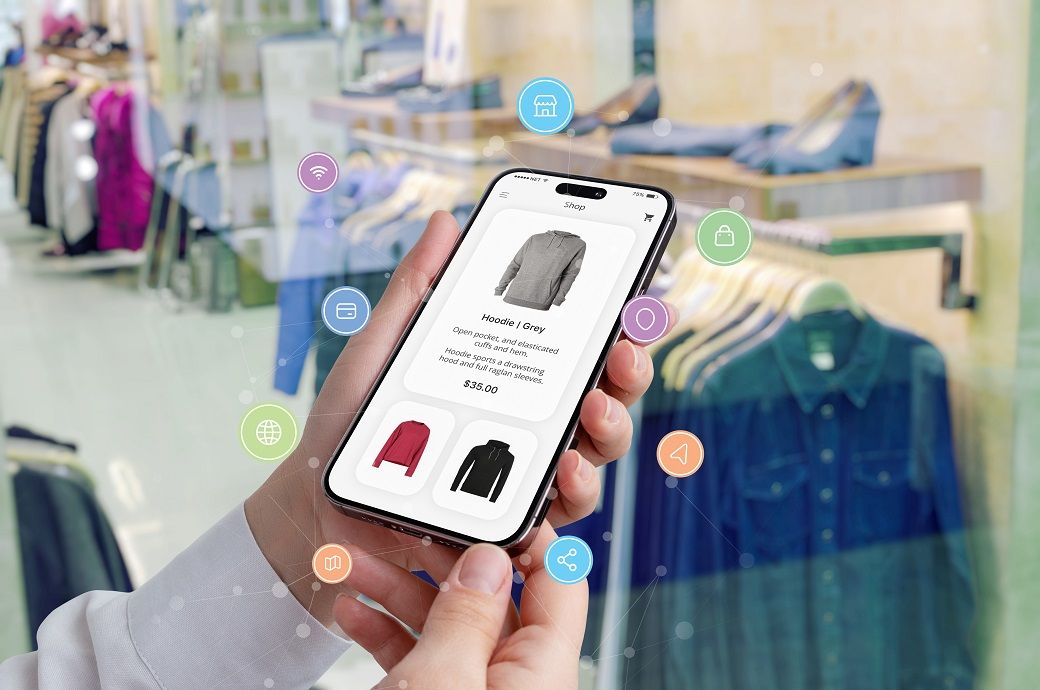
Gen Z shoppers are nearly as likely to use AI platforms (33 per cent) for product research as search engines (37 per cent). Among Millennials, 26 per cent choose AI compared to 40 per cent preferring search engines. Only 13 per cent of Gen X and 3 per cent of Boomers use AI for product research, according to the report titled, ‘New Modes: How AI is Shaping New Commerce Contexts and Expectations.’
Beyond research, these large language model platforms are building credibility with shoppers, as 23 per cent of Gen Z and 27 per cent of Millennials reported they are starting to trust AI platforms more than people for curated product recommendations.
LLM platforms like ChatGPT and Perplexity are becoming part of the go-to tech toolkit, with 41 per cent of all respondents using them daily. The growing prevalence of these tools, especially for more mid-funnel activities like comparing specific products and brands, reaffirms how critical it is for brands to understand when and why their target customers use AI.
The report suggested that AI platforms must develop an Answer Engine Optimization (AEO) or Generative Engine Optimization (GEO) strategy that includes rich brand and product data, which will ultimately feed these platforms and bring consumers closer to conversion.
“Agentic commerce is no longer a concept on the horizon, it’s here, and it’s already the first stop in the shopping journey,” said Al Williams, general manager of B2C at Commerce. “Gen Z and Millennials now trust AI more than search, social or influencers to guide what they buy. The shift is clear: brands that show up inside AI-driven platforms will be the ones earning relevance and loyalty in this new era.”
“Consumers are embracing a new omnimodal reality. Shopping is no longer just an activity—it’s an identity,” said Phillip Jackson, co-founder and CEO of Future Commerce. “AI platforms aren’t just tools; they’re becoming trusted companions in the consumer journey. For retailers and brands, the implication is clear: the path to trust and loyalty increasingly runs through AI-driven channels.”
The study also highlighted how consumers are diversifying their use of different touchpoints beyond traditional search engines and retailer websites. Nearly half (48 per cent) of consumers say they maintain a perpetual mental shopping list, reflecting an ‘always-on’ mindset where commerce is embedded into their daily life and interactions with culture, community, and media. Platforms such as YouTube, ChatGPT, and WhatsApp are becoming critical spaces for both inspiration and transaction, collapsing the traditional commerce funnel.
Twenty-three per cent of Gen Z and 27 per cent of Millennials trust AI product recommendations more than human ones 46 per cent of Gen Z and Millennials use AI platforms daily 41 per cent of all respondents use AI platforms daily. Gen Z is nearly 3x more likely than Gen X to use AI for product research.
Sixty-three per cent of consumers abandon carts when forced to create accounts, underscoring ongoing friction in branded e-commerce site experiences.
Forty-eight per cent of all consumers maintain a ‘perpetual shopping list,’ blurring the line between shopping as an activity and shopping as a state of mind.
Fifty-five per cent of consumers said they would unsubscribe to a brand they like if they receive too many marketing messages from them.
The survey was taken from 1,000 consumers in the US, UK, and Australia/New Zealand, revealing that AI platforms are reshaping shopping behaviours and redefining trust in the buying journey.
ALCHEMPro News Desk (SG)
Receive daily prices and market insights straight to your inbox. Subscribe to AlchemPro Weekly!